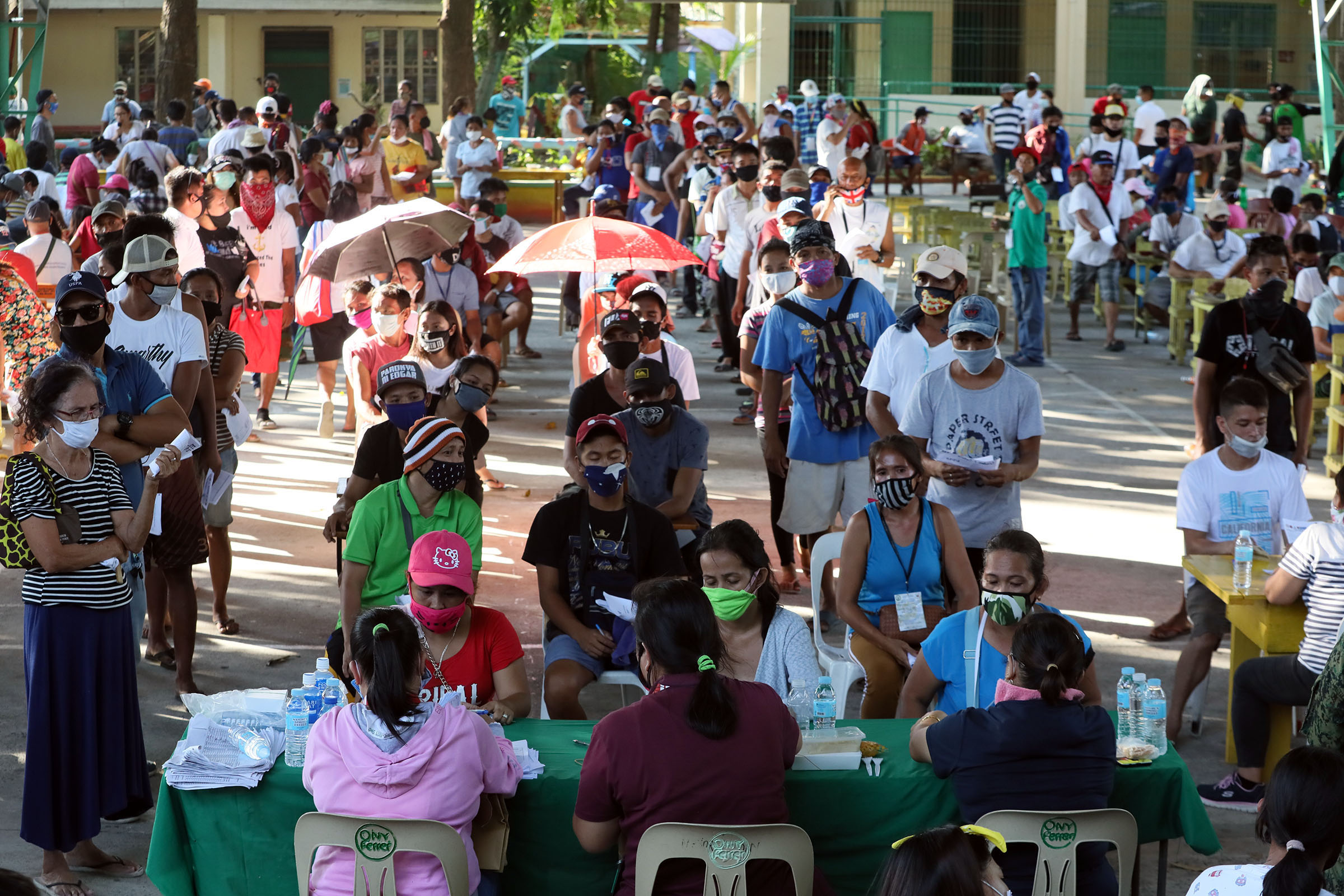News
Palace memo includes 5M more families in SAP 2nd tranche

FILE: The local government of General Trias, Cavite distributes PHP6,500 cash assistance under the Social Amelioration Program of the government to some 1,400 resident-beneficiaries of Barangay Santiago on Thursday (May 7, 2020). (PNA photo by Avito C. Dalan)
MANILA – Malacañang has issued an order for the inclusion of five million additional poor families on the list of beneficiaries of the second wave of cash assistance under the national government’s Social Amelioration Program (SAP).
The memorandum, signed by Executive Secretary Salvador Medialdea on May 22, retains the original number of SAP beneficiaries who will receive the first tranche of emergency subsidies.
“Retain the original numbers and budget for the first tranche of the Social Amelioration Program,” Medialdea, by order of President Rodrigo Duterte, said in the memorandum released on Saturday.
SAP is the national government’s PHP200-billion program which grants emergency subsidies ranging between PHP5,000 to PHP8,000 to low-income households affected by the coronavirus disease 2019 (pandemic).
SAP beneficiaries are expected to receive the monthly cash assistance for April and May.
The original number of SAP recipients, as provided under Republic Act (RA) 11469 or the Bayanihan to Heal as One Act, is 18 million.
However, the Inter-Agency Task Force for the Management of Emerging Infectious Diseases (IATF-EID) earlier agreed to adopt Duterte’s plan to give financial aid to five million more indigent families.
The Palace memorandum directs the IATF-EID to include the additional five million poor households in the roster of beneficiaries of the second tranche of emergency subsidies.
The memorandum states that the five million families will join the 12 million other households under the Assistance to Individuals in Crisis Situation (AICS) program of the Department of Social Welfare and Development (DSWD).
AICS program, one of the 13 social amelioration packages under SAP, allows beneficiaries to receive an outright cash grant of either PHP3,000 or PHP5,000 and PHP25,000 burial assistance in case a member of a family dies due to Covid-19.
Around 17 million low-income families will benefit from the implementation of the second phase of SAP.
The inclusion of the new beneficiaries is “subject to validation by the concerned national government agencies, in coordination with the respective local government units (LGUs) involved,” according to the memorandum.
The latest order from the Palace also said that most recipients of the second wave of payouts reside in areas placed under enhanced community quarantine (ECQ).
It, however, notes that poor families living in places under general community quarantine (GCQ) may also qualify to receive the second tranche of cash aid.
“Household beneficiaries most affected by the continuing restrictions in the operation of certain industries and sectors in areas under a general community quarantine may still be considered for the second tranche,” the order read.
Malacañang earlier revealed that beneficiaries of the second wave of financial assistance are indigent families from areas where ECQ and modified ECQ (MECQ) are imposed.
Cebu and Mandaue cities were placed under ECQ until May 31, while Metro Manila, Laguna, Bataan, Bulacan, Nueva Ecija, Pampanga, and Zambales were put under MECQ.
GCQ was imposed in areas nationwide that are not under ECQ or MECQ.
The Palace memorandum directs DSWD, in coordination with the Department of Information and Technology and the National Privacy Commission, to expedite the creation of the online portal containing the list of eligible SAP beneficiaries.
The directive was in line with the need “to accelerate the delivery of SAP benefits to qualified beneficiaries and to promote transparency and public participation in ensuring that the emergency financial subsidies are received only by those who are eligible under the different programs of the SAP,” Medialdea said in the memorandum.
The list should include the identification of SAP recipients’ village, municipality or city, and region; the amounts they receive; and the specific program under which they received government assistance.
This, based on the memorandum, was meant to enable the public to have the opportunity to verify the entitlements of the SAP beneficiaries.
“The online portal must include a mechanism to receive feedback from the public to assist the government in assessing its performance in delivering the assistance, determining whether an investigation against specific persons is necessary, and identifying persons and areas that were not covered,” the memorandum said.





















